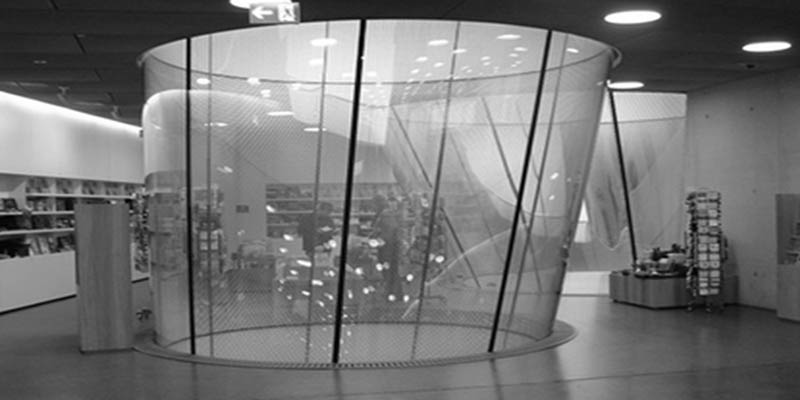Downloads
DOI:
https://doi.org/10.7480/jfde.2014.1-2.882Abstract
In the last years an increase of the number of building projects with built-in curved glass can be observed. The applications can principally be curved monolithic glass, laminated safety glass or insulated glass. This fact makes it absolute of interest to make more investigations in this field. The investigations can be focused on e.g. the process of the bending of the glass to bring it into a certain shape, or the very difficult topic of pre-stressing it. The state of the art of the production process of such glass shows some different ways to produce curved glass. The most used way is to bend the glass at a high temperature of more than 550° Celsius. Another kind of curved glass can be achieved in combination with the laminating process. With the cooling down at the end of the laminating process the interlayer becomes stiff enough to hold the shape by activated shear forces between the glass layers. Another possibility is to produce flat glass and bend it while mounting the glass. The question how to pre-stress curved glass is on the very first beginning of investigations. All these different processes are on the first view very easy but very difficult in the detail.
How to Cite
Published
Issue
Section
License
Copyright (c) 2015 Jürgen Neugebauer

This work is licensed under a Creative Commons Attribution 4.0 International License.
Authors or their institutions retain copyright to their publications without restrictions.
References
Fildhuth, T., Knippers, J., Bindji-Odzili, F., Baldassini, N., & Pennetier, S. (2014, January). Recovery behaviour of laminated cold bent glass – Numerical analysis and testing. In Challenging Glass 4 & COST Action TU0905 Final Conference (p. 113). CRC Press.
Leduc, N., Raynaud, J. & Baldassini, N. (2012), Project for the Eiffel Tower: Constructive Geometry. In Challenging Glass 3. Conference on Architectural and Structural Applications of Glass Faculty of Civil Engineering and Geosciences Delft University of Technology June 2012 (p. 93). IOS Press.
Neugebauer, J. (2009). A Design Concept for Bent Insulated Glasses for the Reading Room of the Berlin State Library. Proceedings of Glass Performance Days.
Neugebauer, J. (2012). Big Daylight Funnels made of conical shaped Insulated Glass, engi-neered transparency. International Conference at glasstec. Düsseldorf, Germany.
Neugebauer, J. (2013). Applications for curved glass. In J. Belis, Chr. Louter, & D. Mocibob (Eds.). COST Action TU0905 Mid-term Conference on Structural Glass (p. 69-75). Boca Raton, Fl: CRC Press, Taylor & Francis Group.
Karlsson, S., Jonson, B., & Stålhandske, C. (2010). The technology of chemical glass strengthening – a review. Glass Technology-European Journal of Glass Science and Technology Part A, 51(2), 41-54.
Niderehe, S. & Eekhout, M. (2008). Spontanious glass breakage in hot bent, heat strengthened, laminated glass panels, In Challenging Glass, Conference on Architectural and Structural Applications of Glass, Faculty of Civil Engineering and Geosciences Delft University of Technology May 2008 (1) (p. 513). IOS Press.
Strabag, www.strabag.at
